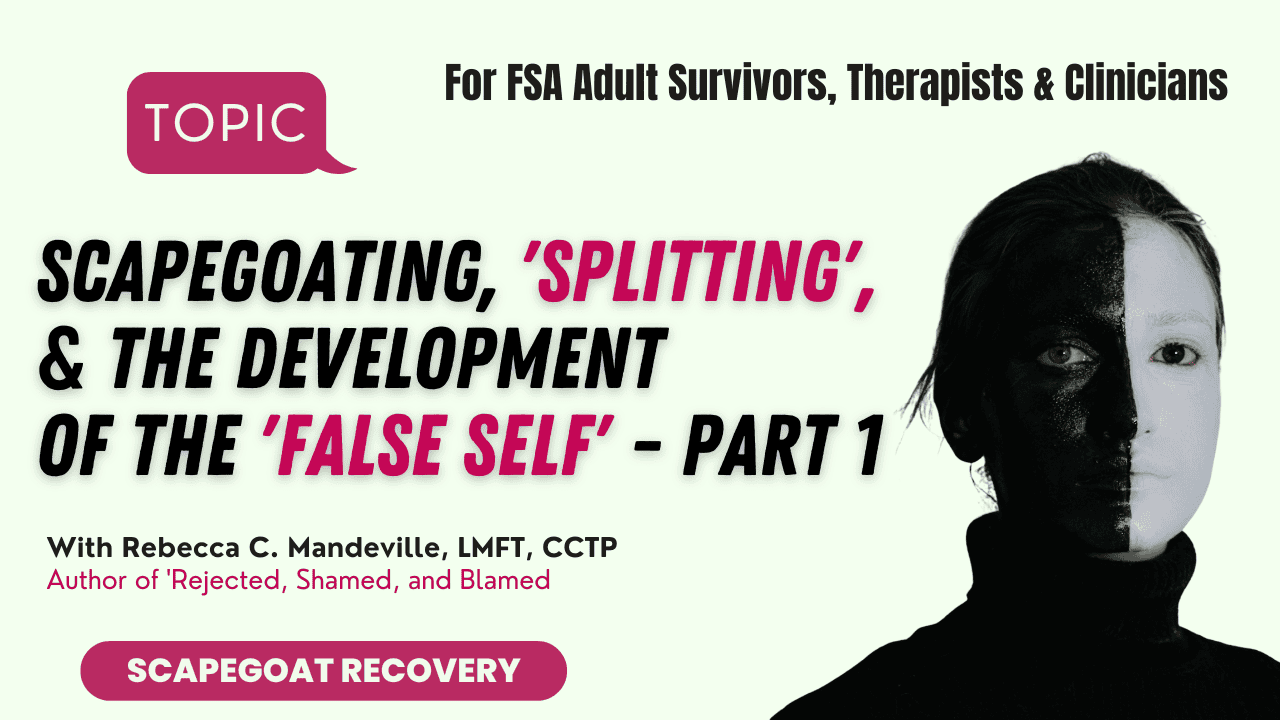Author: Rebecca C Mandeville LMFT CCTP
-

Scapegoating, Narcissism, and Reactive Abuse
Reactive abuse is when someone who is a victim of abuse (family scapegoating abuse, in this case) reacts to the abuse in such a manner that if an outside person were to be a fly on the wall observing, it would make it look like they, and not the perpetrator, are the abuser.
-

Take the NEW FSA Survey (2023)
New Scapegoat Survey: I’m excited to announce that I am now conducting research for my next book. You are invited to take this anonymous survey.
-

June 2023 Newsletter – FSA Education
Welcome, new subscribers! I’m including my latest video, which reviews 16 experiences that came up frequently while conducting my original research on what I eventually named family scapegoating abuse (FSA). By the way, these 16 experiences are included in my book Rejected, Shamed, and Blamed; I do expand upon what I wrote in this particular…
-

How the Scapegoat Child Develops a ‘False’ Self
An important, sometimes even critical, aspect of recovering from family scapegoating abuse (FSA) is to recognize that you may have developed a ‘false’ or ‘survival’ self very early in life to survive a hostile or threatening family environment.
-

Scapegoating as Family Betrayal (Video)
Abuse of any type can result in the victim experiencing complex trauma and betrayal trauma, which can in turn lead to dissociation….
